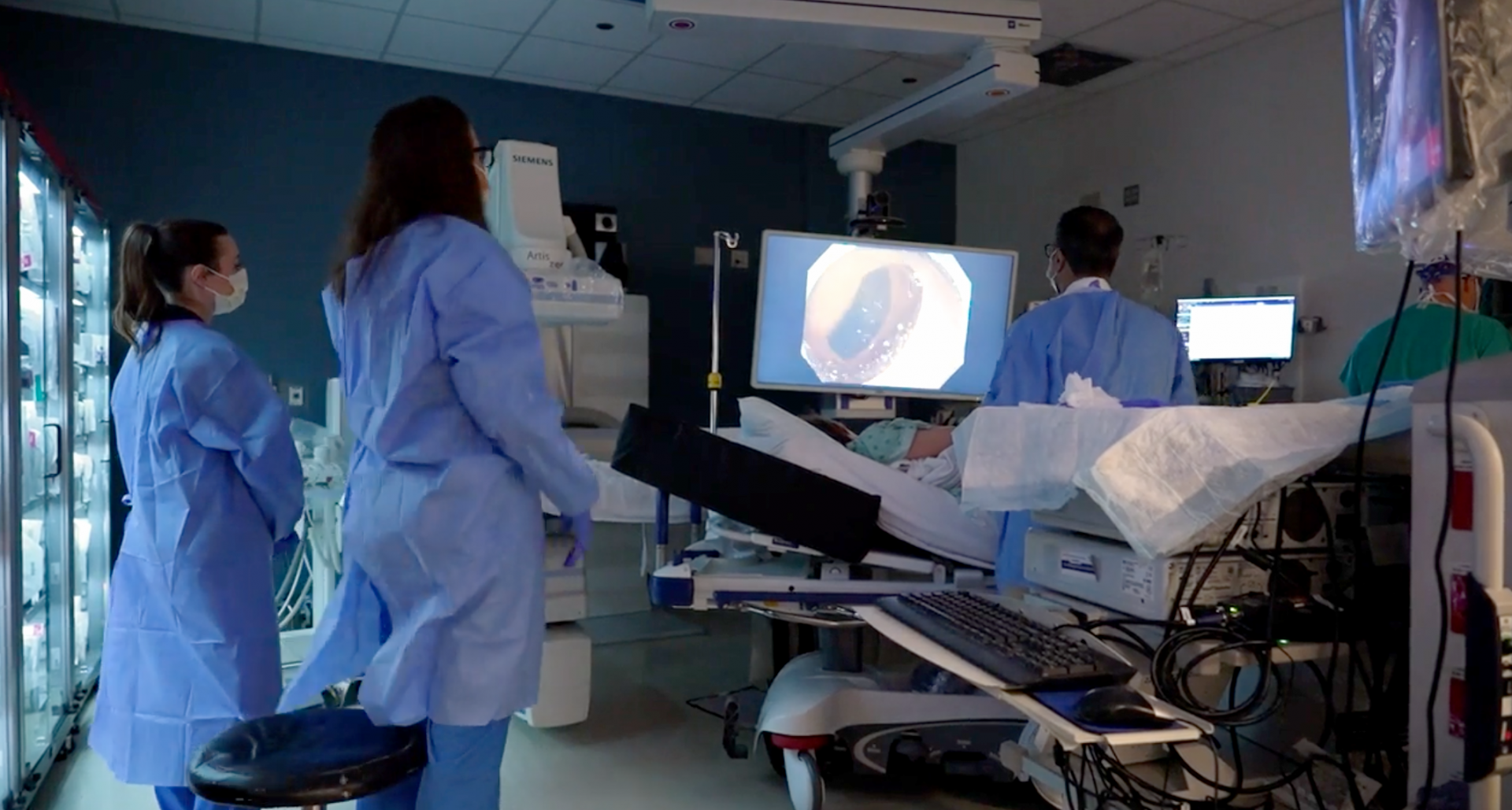Artificial intelligence helps Northwestern Medicine gastroenterologists detect, remove 13% more colorectal polyps
Health system invests in advanced technology to enhance patient care

Physicians who performed colonoscopies assisted by artificial intelligence achieved a 13 percent increase in the detection and removal of colorectal polyps, according to new research by Northwestern Medicine shared May 9 at the Digestive Diseases Week conference in Chicago. Gastroenterologists using the FDA-approved Medtronic GI GeniusTM computer-aided detection system removed more adenomas, the most common type of colorectal polyp, compared to when the system was not available or used.
Previous research has shown that each 1 percent increase in the adenoma detection rate was associated with a 3 percent decrease in the risk of cancer within five years of a colonoscopy.
“This means that computer-aided colonoscopies could reduce future colon cancer diagnoses by up to 39 percent,” said Rajesh Keswani, MD, MS, director of endoscopy for Northwestern Memorial Hospital and director of quality for the Northwestern Medicine Digestive Health Center. “The results could even be more dramatic in suburban or rural hospitals, where fewer screening colonoscopies are performed and there may be more variation in quality.”
Because of our commitment to high-quality colonoscopy, we were already doing better than the national guidelines recommended. But could AI make us even better? The answer is very clearly, ‘Yes.’

Over the six-month study period, 21 gastroenterologists at Northwestern Memorial Hospital performed 4,820 colonoscopies. Nine of the physicians used the computer-aided detection software most of the time, and polyp removal rates significantly increased among the physicians who used the software compared to those who did not.
“We felt it was important to assess the use of AI in our group of already high-performing colonoscopists,” Dr. Keswani said. “Because of our commitment to high-quality colonoscopy, we were already doing better than the national guidelines recommended. But could AI make us even better? The answer is very clearly, ‘Yes.’”
By detecting and removing more polyps, physicians reduce the risk of colon cancer developing before a patient’s next colonoscopy.
“Most polyps do not become cancerous, but nearly all colorectal cancers begin as polyps,” said Dr. Keswani, who is part of the Robert H. Lurie Comprehensive Cancer Center of Northwestern University. “We want to detect them in their earliest stages and remove them to prevent future diagnoses of cancer. There’s nothing better than telling a patient that their decision to have a screening colonoscopy may have saved their life.”
Most polyps do not become cancerous, but nearly all colorectal cancers begin as polyps.

Based in part on this research, Northwestern Medicine recently purchased GI Genius devices to equip every endoscopy suite in its nine acute-care hospitals and in four outpatient locations in the Chicago suburbs.
“Patients who come to any Northwestern Medicine location for colonoscopies will now have access to this technology, which is improving the way we predict, detect and diagnose colon cancer,” said John Pandolfino, MD, chief of gastroenterology and hepatology at Northwestern Medicine. “This investment shows we’re committed to using and developing artificial intelligence and machine learning to improve the way we care for patients.”
Dr. Pandolfino leads the Center for Artificial Intelligence and Mathematics in Gastroenterology, a first-of-its kind program that was developed in collaboration with engineers at the McCormick School of Engineering at Northwestern University.
“Our team is constantly developing new ways to be more accurate and efficient in the care we provide,” Dr. Pandolfino said. “It’s incredibly gratifying to know this technology will be available to patients in every Northwestern Medicine location where colonoscopies are performed.”
It’s incredibly gratifying to know this technology will be available to patients in every Northwestern Medicine location where colonoscopies are performed.

